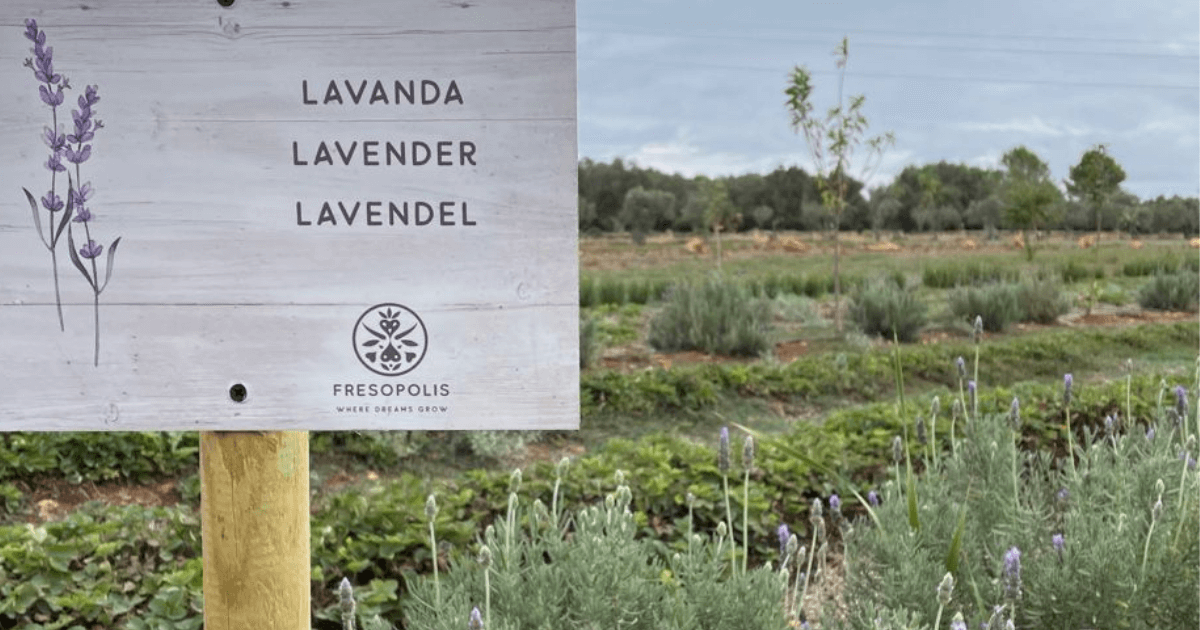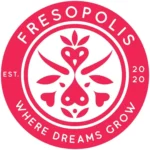6 Mallorca healing herbs that deserve a favorite place in your home remedy kit
An old wisdom of unknown origin onces says: “Always live on what naturally grows in your close surroundings. It will provide you with all you need. It shares the same conditions with you and has learned to survive. And it is, just like you, a part of nature.”
And indeed: if we have a closer look at what kind of healing herbs and plants grow and prosper in Mallorca, the island’s flora shows to have an answer to plenty of ailments that typically affect both residents and holidaymakers. Whether for relieving sunburns, digestive disorders, skin problems or a summer minor illness, a natural remedy can be easily found next door. You just have to know about it.
Healing herbs in Mallorca – steeped in history and as topical than ever
The fascination for the abundance of the island’s healing herbs goes back to ancient times. It was already highly appreciated among Romans and Phoenicians. Thanks to the dedication of experts and scientists, this fascination is kept alive to the present. A doctoral thesis by Mallorcan biologist and homeopath Carles Amengual i Vicens published in 2017 states that every third plant that grows on the Balearic archipelago (662 of the 2006 native plants) contains ingredients with medicinal properties. Knowing this, isn’t it worth taking a look at the plants that grow along the island’s footpaths?
Medicinal herbs on Mallorca. The pharmacy by the wayside
It would certainly be way beyond the scope to list all the healing herbs to be found on this island. Let’s focus on a fine selection of local herbs which alleviate best those typical complaints that all come home to us at some point while enjoying time at this beautiful spot in the Mediterranean.
6 medicinal herbs of Mallorca and their healing powers
ALOE VERA
Photo: Aloe Vera
Why buy expensive, chemical skincare products to relieve a sunburn if the island’s nature offers us a compatible remedy?
This cactus plant that originates from the Arabian Peninsula and South and East Africa has long since proved its worth thanks to its cooling, moisturizing properties when it comes to providing relief against the effects of an excessive exposure to the sun. Incidentally, it is considered a helpful remedy against unpleasant insect bites and alleviates the symptoms of skin conditions such as neurodermatitis and acne. Shampoos based on its ingredients, by the way, are known to counteract itchy, dry scalps.
Rock climbers and hikers to be in the know of its wound-healing and anti-inflammatory properties help themselves to the fresh gel of this plant that grows by the wayside to heal superficial wounds and scratches.
Besides, the thick and fleshy leaves of this succulent plant is rich in vitamin C and E and serve to boost the immune system in a natural way. A mix of the plant’s gel with water or the juice of a cucumber taken on an empty stomach is said to relieve digestive problems. With all these benefits, Aloe vera definitely deserves a place in your natural medicine cabinet!
ROSEMARY
Photo: rosemary
People in the Mediterranean region have been swearing by the healing properties of this Mediterranean plant since ancient times. Even today, linguists argue about the origin of its name. Some assume that it was the Romans who once gave this miracle herb the name “ros marinus”. The Latin term “ros” means “dew”, while the term “marinus” refers to the plant’s characteristic of growing especially near the sea.
Other linguists assume that it was the Greeks who used the name “rhops myrinos” (roughly “fragrant shrub”) to pay respect to the excellent scent of this shrub.
Whoever discovered the healing power of rosemary, it is generally agreed that it’s the ”Swiss army knife” among medicinal herbs. This Mediterranean shrub has what it takes and provides natural relief for a whole range of health problems.
Ever had that full feeling after enjoying a solid meal at a restaurant? Stock up with rosemary beforehand next time! This medicinal herb is, first of all, an excellent remedy to the unpleasant side effects of an overindulgent meal.
Furthermore, rosemary is known to work well as an infusion in order to stimulate the circulation and against flatulence. It also stimulates the blood supply to the abdominal organs and foments the production of gastric and intestinal juices. Rosemary is also famous for its diuretic properties and for its soothing effect on headaches.
In the cooler months of the year, rosemary is a popular bath additive due to its disinfecting agents that promote the healing process of poorly healing wounds.
As with other medicinal herbs, it depends on how it is used. When ingesting rosemary, have in mind that overdoing it can trade its healing effect for unpleasant side effects. Daily doses of 6 g leaves for tea infusions, 20 drops of essential oil and 50 g for baths should not be exceeded. Pregnant women are generally advised not to take it.
FENNEL
Photo: fennel
Fennel is another favorite among the experts of healing herbs.
Once diligently planted by Romans and Phoenicians, this fragrant medicinal herb can now be found in overgrown form on the way to the beach or to the left and right of the hiking trails leading through the Mallorcan plains.
You’ll be amazed especially during the summer months from June to October by the shimmering yellow of the fennel blossom.
Mild infusions of fennel aid digestion and stimulate the appetite. Incidentally, they moderate complaints of high blood pressure.
Anyone who is struggling with eye inflammation can also help themselves to fennel. For this purpose, crush some fennel seeds (approx. 10 g) with a mortar and pour freshly boiled water over them. Wait about 15 minutes. Soak a cotton pad with the warm infusion and place it on the inflamed eye for a few minutes.
Last but not least there’s also good news for passionate night crawlers: fennel leaves help to avoid unwanted halitosis and might play an essential role at the time to find the soul mate without any detours.
Like rosemary, fennel is also a popular ingredient in traditional recipes of Mediterranean cuisine. It is, by the way, one of the most important ingredients in the production of the Mallorcan herbal liqueur “Hierbas”.
CHAMOMILE
Photo: chamomile
Most people have been familiar with chamomile since childhood. Wasn’t your grandmother keen on this plant’s healing properties, praising it as the all-curing natural remedy? It has, in fact, proven itself to be an excellent alternative to a whole range of products from the pharmaceutical industry to this day.
Its flowers are found abundantly in the fields of Mallorca between June and October. They are used to treat a variety of ailments. As an infusion, it is known to alleviate stomach and liver complaints. Inhaled, it provides relief from respiratory diseases. And it can also be gargled to fight stubborn colds. And with that, it definitely is another must-must-be in our medicine cabinet. Don’t believe in getting a cold on a sunny island? Remember: especially in the hot summer months, we catch them quickly in air-conditioned shops and public transport.
THYME
Photo: thyme
And there’s another powerful medicinal herb growing wildly in Mallorca capable of fighting a hard cold. With its spicy aroma, thyme is not only a favourite ingredient of typical Mediterranean dishes, but also very appreciated among homeopaths. The essential oil of thyme shows its healing power especially against coughs, colds and has an expectorant effect on complaints in the respiratory tract and sinuses.
Its purple colored flowers attract attention in the island’s landscape especially in summertime.
LAUREL
Photo: laurel
Though highly popular as a spice plant for local dishes, laurel is rarely found growing wild on Mallorca. You will be able to collect its leaves especially in the northern part of the island, for example along the slopes of the famous Torrent des Pareis gorge. It is all the easier to spot this evergreen tree in private gardens, as Mallorcans know about their richness in essential oils.
As the leaves of the laurel tree are particularly rich in essential oils during the summer months, it’s recommended to harvest them in the hot season. The medicinal effect of laurel, especially thanks to its components cineol and eugenol, unfolds particularly well in the form of an infusion. It is especially for chronic and inflammatory respiratory diseases such as bronchitis, asthma and hay fever.
But laurel can do even more: this medicinal plant is also known to prevent heartburn, stimulate the appetite and reduce inflammation.
The laurels ingredients, in addition, are proved to have a diuretic and diaphoretic effect and thus promote the elimination of fluids and toxins – a quality that made this plant popular for slimming diets. At the same time, taking laurel is beneficial for people with circulatory problems, gout or liver disease.
The ingredients of laurel are also used externally in the treatment of various skin diseases caused by fungi, as well as for bruises, burns, ulcers, abscesses or acne.
Pick them fresh in our aromatic herb garden!
Of course, there are many other medicinal herbs growing wildly in Mallorca. Our herb garden is home to over 30 different healing and culinary plants. Here you will find a splendid selection of spice and healing plants. Pick them freshly from the garden and get the best out of them, whether as a spice or as a natural health remedy. And by the way: our wise herb witch frequently whispers out absent-mindedly her deepest secrets while sneaking around in our herb garden.
Listen to our herb witch’s whispers and become an expert in the islands medicinal and culinary herbs!


